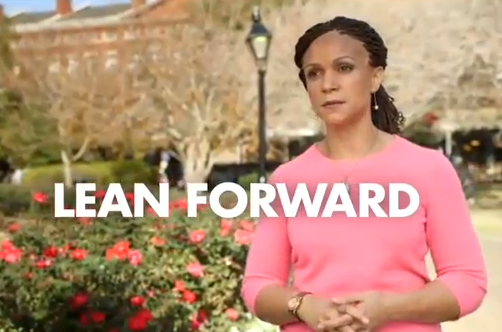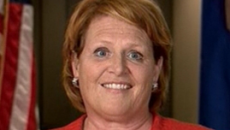MSNBC Personality: "We Have To Break Through Our Idea…That Kids Belong To Their Parents"

In a promo for MSNBC, Melissa Harris Perry says we need to “break through” the idea “that kids belong to their parents” and instead recognize that kids belong to their community.
It sounds radical – and it is – but this isn’t exactly a new idea. Around the turn of the last century American progressives such as John Dewey were talking about the family unit as an anachronistic hold-over from agrarian societies. Families were useful in that younger generations helped older generations farm the land, but in a modern society (according to people like Dewey) such structures weren’t needed and it was better for the state to step in to educate and raise the children.
If you think that sounds a little scary, it is. It’s even scarier these sort of ideas are being promoted by a cable news network, instead of some dusty book about a bygone era of left-wing thinking.
That era is not as bygone as some of us would like to believe, it seems.
Here’s the problem with the “it takes a village” sort of thinking: When everybody is responsible, nobody is responsible.
Harris-Perry wants us to believe that children will be raised better when everyone is responsible, instead of just individuals. But how does that work out for kids in orphanages and foster care situations? I don’t want to run down the job foster parents and social workers do, but are we to believe that those wards of the state are better cared for than a child cared for by loving, engaged parents?
Let’s use another example. How about housing? Which are better cared for, on average? Homes that are privately owned, or homes that are publicly owned?
And another example. In Grand Forks, a few years back, at the University of North Dakota campus the student government tried to set up a community bicycle program. The idea was that the campus would be seeded with bicycles that belonged to everyone, and would be free for anyone to use. How did it work? Not well. Most of the bikes ended up either missing, or damaged to the point of being unusable.
Because the bikes belonged to everyone, they belonged to nobody. And so nobody really cared about them.
Not everyone takes great care of their home. Not everyone takes care of their bicycles. And not every family is perfect. But the imperfect nature of our private lives is no reason for a state take over, especially when the state taking over no doubt means far more harm than good.







